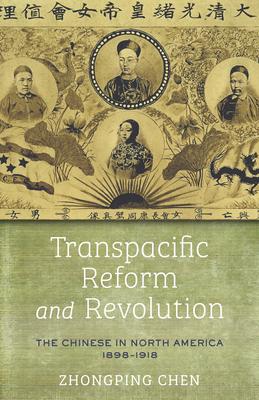The late nineteenth and early twentieth centuries saw the turbulent end of China's imperial system, violent revolutionary movements, and the fraught establishment of a republican government. During these decades of reform and revolution, millions of far-flung "overseas Chinese" remained connected to Chinese domestic movements.
This book uses rich archival sources and a new network approach to examine how reform and revolution in North American Chinatowns influenced political change in China and the transpacific Chinese diaspora from 1898 to 1918. Historian Zhongping Chen focuses on the transnational activities of Kang Youwei, Sun Yat-sen, and other politicians, especially their mobilization of the Chinese in North America to join reformist or revolutionary parties in patriotic fights for a Western-style constitutional monarchy or republic in China. These new reformist and revolutionary parties, including the first Chinese women's political organization, led transpacific movements against American anti-Chinese racism in 1905 and supported constitutional reform and the Republican Revolution in China around 1911, achieving transpacific expansion through innovative use of cross-cultural political ideologies and intertwined institutional and interpersonal networks. Through network analysis of the origins, interrelations, and influences of Chinese reform and revolution in North America, this book makes a significant contribution to modern Chinese history, Asian American and Asian Canadian history, and Chinese diasporic scholarship.
